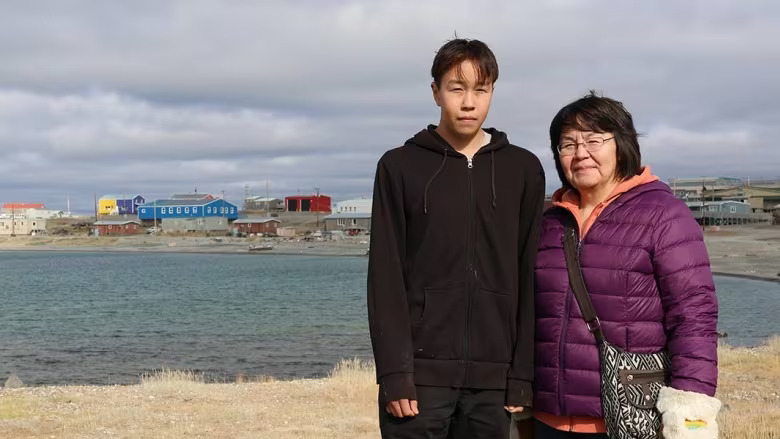Non-profit offers free Starlink internet to Ulukhaktok; residents say they’re good

Multiple residents say they use their own Starlink accounts and don’t need the community-wide program.
A non-profit is touting a pilot program that offers free Starlink internet to people in Ulukhaktok, N.W.T., using SIM cards, although many in the community say they just use their own Starlink accounts, which works better.
The pilot program was started by the Internet Society, an American non-profit organization with international chapters that promotes reliable and affordable access to internet.
The organization has been working with Ulukhaktok since 2019, said Natalie Campbell, a senior director with the Internet Society.
She said COVID-19 delayed the project and by the time the team returned to Ulukhaktok, there was new technology available, including Starlink, a satellite internet service operated by SpaceX.
“That’s one of the big things that changed, a lot more people started to get Starlink accounts,” Campbell said.
“We landed on an option that was fairly simple.”

She says using the hamlet’s Starlink account, they were able to create a community-based network. Campbell said they then used a device that made the internet available across the community as a “wireless spectrum.”
Residents could access this with SIM cards that they could put in their phones.
According to the hamlet office around 100 SIM cards have been distributed.
A news release issued by the Internet Society says the organization worked in partnership with the Inuvialuit Regional Corporation, the Ulukhaktok Community Corporation and the Hamlet of Ulukhaktok.
An abundance of Starlink
Laverna Klengenberg lives in Ulukhaktok and was quoted in a news release the organization issued, saying she appreciated having access to better internet.
But Klengenberg says she doesn’t use the SIM cards, and instead chooses to use her own personal Starlink.
“People have trouble connecting their devices to the internet with them. Some have had success, but a lot of others didn’t,” Klengenberg said.
“I don’t think there are many people using those SIM cards.”
Klengenberg said she thinks people had trouble reconnecting their phones to that network after a power outage in the community and that many stopped using it after that.
Campbell said she heard there may have been some issues connecting older devices to the network.
Gary Bristow, another Ulukhaktok resident, said he also uses his own Starlink and doesn’t know of many people using the SIM card system.
There’s like 80 or 90 Starlinks in town. – Gary Bristow, Ulukhaktok resident
Klengenberg says the project by the Internet Society was a good idea in 2019, but by the time it came to fruition, many already had their own Starlink, which has been revolutionary.
She described internet access before Starlink as “really, really slow. Very costly. Often went on overage charges every month. It’s just really bad internet, really poor.”
Now Klengenberg says, her internet is fast and effective, and the fact people can bring their dish with them on the land has been great for hunters and trappers.
“We often use FaceTime with my daughters who are away for school. And also like just in town with our grandson, he likes to call us on FaceTime.”
The emergence of Starlink across the N.W.T., comes just over five years after the completion of a nearly $200 million fibre optic line which aims to offer high speed internet across the territory.
Extensions to that project are ongoing. In July the federal government announced a joint investment of $20 million to expand the fibre link from Inuvik to Tuktoyaktuk.
With files from Lawrence Nayally.
Related stories from around the North :
Canada : Could Ulukhaktok’s community network be an internet model for other communities?, Eye on the Arctic
Norway: New satellites to boost communications in Arctic Norway, The Independent Barents Observer
Russia: Russian military to get fast, secure internet through trans-Arctic cable, The Independent Barents Observer
United States: $30.3 million grant announced to build up high-speed internet in rural Alaska, Eye on the Arctic



